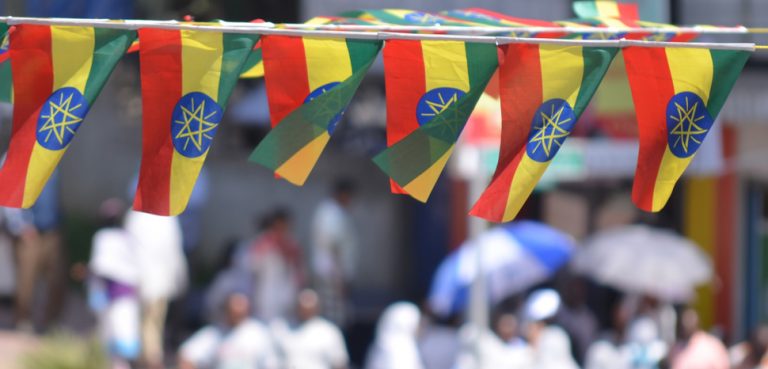Realist scholars of international relations are traditionally inclined to regard small states as inherently at a disadvantage when it comes to being able to pursue an independent foreign policy course. Such states are also frequently perceived to be in a vulnerable position with regard to the impacts of global crises, as their lack of material power, especially in the military sphere, often makes them mere appendages to the whims of benevolent or not so well-disposed middle and large powers.
However, the ongoing COVID-19 pandemic has brought to light how being a small state can actually offer a number of tangible benefits in terms of successfully cushioning the effects of ‘critical events’ of that nature, as well as provide ample opportunities for enhancing one’s global reputation.
For the sake of conceptual clarity, the definition for a small state used in this article will be one of a sovereign political entity that includes a population from 100,000 to five million people. This definition excludes a number of microstates and also reflects a middle ground approach between the understandings of the concept subscribed to by demographer Simon Kuznets, on the one hand, and the economists Eswar Prasad and Ayhan Kose, on the other.
What seems to be emerging as a consensus among epidemiologists and public health experts is that states that act early and decisively, and those that are able to adapt their response to the epidemiological situation at hand, have the brightest prospects of success in containing COVID-19.
Small states enjoy several advantages on this front. Firstly, a small state is likely to have a more homogeneous population than a larger one – in terms of ethnic, cultural, and religious divides, the nature of the existing political cleavages, and so on. Thus, there is a higher probability of a government’s appeal to national unity resonating with the wider society, making the implementation of unpopular measures such as the closing down of sectors of the economy easier to sell to the population. Also, public goods such as preserving law and order are believed to require less investment in smaller states, especially if they fit the definition of high-trust societies as well (as in the case of Iceland, another COVID-19 success story), than in larger heterogeneous ones, which further facilitates the enforcement of pandemic control regulations.
Furthermore, some scholars also believe that small states can afford to be more flexible and possess additional wiggle room for political maneuvering if a national-level crisis management strategy needs to be adjusted or changed. The Sultanate of Brunei’s use of a comprehensive surveillance mechanism and the ability to get religious officials on board in terms of closing mosques (despite the rather conservative form of Islam practiced in the country) is a testament to the importance of having a tight-knit community when responding to a global threat.
Sharp turnarounds in policy have been an inescapable reality for many countries during the COVID-19 pandemic because the novel nature of the virus has resulted in constantly evolving protocols pertaining to the best practices regarding containment and treatment. Unless a larger state is dominated by ‘big tent’ politics (as in Russia where United Russia, which has been characterized as a hegemonic party, appeals to a large swath of the population that consists of non-ideological voters) or there is a strong political culture of building ‘grand coalitions’ (Germany being a notable example), political infighting and the need for extensive negotiations by actors straddling different ends of the political spectrum may compromise the expediency with which a state is able to react.
Concerns about the bureaucratic inefficiencies associated with larger political entities have also spilled over into critical attitudes toward the European Union, as manifested in the case of Germany applying pressure on the EU medical regulator (in December 2020) to show greater expediency in approving Pfizer-BioNTech’s COVID-19 vaccine.
In addition, a small state may be somewhat more likely to underestimate rather than overestimate its own capabilities when it comes to aspects such as the health infrastructure of the country. One of the principal reasons why a number of Pacific islands such as Samoa and Vanuatu took action very quickly in closing their borders has to do with their immediate realization that they were far from equipped to handle a health crisis of such magnitude, so the only reasonable course of action was to put all their eggs in the basket of prevention.
One further factor that is of importance concerns the amount of attention from the international community that small states receive relative to their larger counterparts.
It is well-established that even countries that are classified by political scientists as authoritarian regimes are conscious of the image they project to the outside world and are interested in raising their stature abroad. Small states (a few exceptions such as countries wielding disproportionate international influence relative to their size such as Qatar notwithstanding) as a rule face significantly less international scrutiny compared to their larger counterparts. Thus, a small states’ failure in domestic policy responses when it comes to tackling the coronavirus is less likely to result in negative publicity and affect dealings with partner countries as opposed to in the case of a superpower such as the USA, where the Trump administration’s foundering efforts in bringing the pandemic under control have constantly been on the international radar and were arguably a decisive factor in costing the president a second term. The more extensive the avenues of influence that a state has, the more likely is it to suffer from guilt by association, as negative developments affecting a particular set of countries may be tied to the action or lack of action on the part of the global player. By the same token, the expectation that a larger state should be mindful of certain strategic interests may compromise a number of policies related to the health of its citizens, as evidenced by the continuation of Mahan Air (a company with links to the Islamic Revolutionary Guard Corps) flights between Iran and China during the month of February 2020, in violation of the Iranian government’s announced suspension of air travel to and from China on 31 January.
Thus, with regard to nation branding (managing the reputation of a country) a small state is in an intrinsically better position than a larger one even if its coronavirus strategy turns out not to be particularly successful. In contrast, if a small state manages to become a trend-setter and emerge as the blueprint to follow with regard to being a successful outlier in competently handling such a disease outbreak, this would noticeably boost its nation-branding efforts, as the country would be able to distinguish itself from other small states and gain recognition in international circles. New Zealand is believed to have amplified its soft power due to being universally regarded as a model pupil on COVID-19, with the high efficiency of its eliminationist approach to the virus exceeding the initial expectations of many health experts. As a counter-example, in spite of the foreign aid it has provided to other countries ravaged by the pandemic, China’s global image has plummeted due to suspicions that it had initially attempted to hide the scale and gravity of the COVID-19 outbreak.
In essence, a small state appears to carry less of a psychological burden than a larger one in terms of how its pandemic-related policies are viewed by the international community – it has much more to gain than to lose with regard to its international standing.
While the international efforts toward ending the COVID-19 pandemic have naturally seen the larger states in the driving seat in terms of the allocation of resources and scientific output, many smaller states have remained relatively unaffected by the global disease outbreak due to a combination of being easier to govern and more capable of banding together in the face of an existential crisis, a realistic assessment of their own vulnerabilities, and an implicit understanding that their potential success when it comes to finding the right recipes for such an adverse event of global proportions is an unparalleled opportunity for them to shine on the international stage.
The views expressed in this article are those of the authors alone and do not necessarily reflect those of Geopoliticalmonitor.com or any institutions with which the authors are associated.




